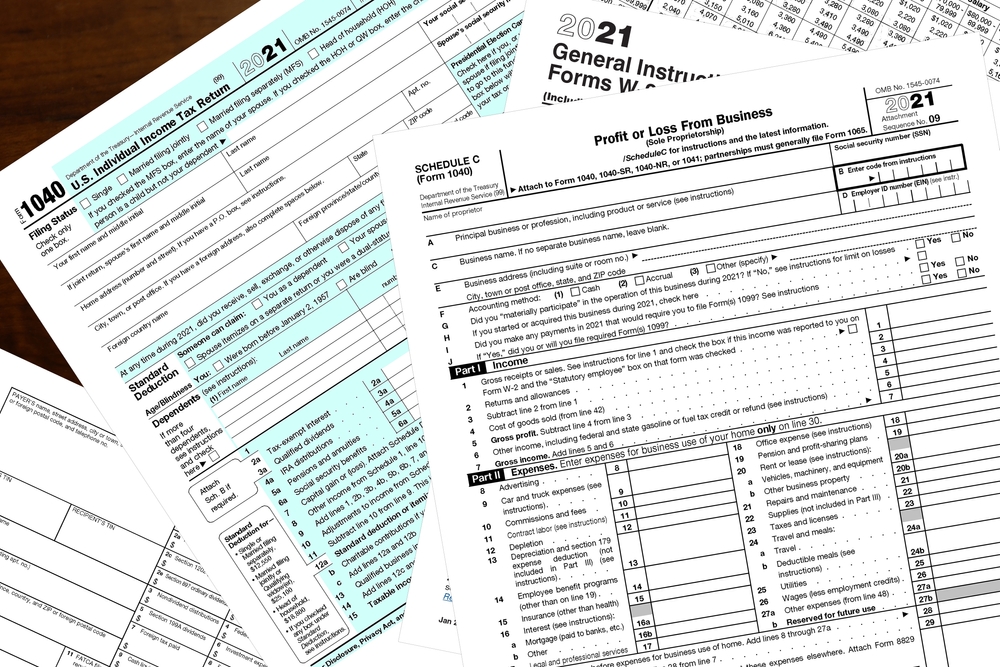How to Steer Clear of Employee Retention Credit Fraud
How to Steer Clear of Employee Retention Credit Fraud
This article was published on September 25, 2024 on The Orlando Business Journal website and is reposted here with permission from the publication.
Orlando firms need to make sure they aren’t among the thousands of U.S. businesses that potentially were tricked by scams to inadvertently file fraudulent employee retention credit claims — something punishable by fines and even jail time.
The credit was created in 2020 as a part of the Coronavirus Aid, Relief, and Economic Security (CARES) Act where an employer negatively affected by Covid-19 could get a refundable tax credit of up to 70% of the qualified wages they paid to employees in 2021.
The Internal Revenue Service put a moratorium on the claims last September due to marketing scams and a high number of claims from ineligible employers. The IRS in August reduced the size of a moratorium on the claims to the program to prevent fraud and abuse and sent out 28,000 disallowance letters to businesses whose claims showed a high risk of being incorrect, which will prevent up to $5 billion in payments.
There are more than 460 criminal cases and thousands of audits, while it also identified 50,000 valid ERC claims for which it sped up payments.
With that in mind, RumbergerKirk law firm Partner Suzanne Barto Hill and Associate Julie Potts spoke with Orlando Business Journal on how businesses can avoid being caught up in an ERC scam:
What kind of scams tied to ERC have affected businesses, and how can they be avoided?

Potts: While the ERC was intended to help businesses, a growing number of scams created dangerous traps for business owners. Scammers flooded television, social media and the radio with ads, in addition to phone calls and text messages related to the ERC. They promised an easy application process, charged upfront fees or charged fees based on a percentage of the ERC refund amount claimed. They left out key details of eligibility requirements or did not accurately explain how to calculate the credit. Many businesses unknowingly filed ineligible claims and could be left facing penalties and fines. The 2020 ERC deadline for applying has passed, but the statute of limitations for the 2021 ERCs does not close until April 15, 2025. The IRS has stated the moratorium on new claims will continue at least through September 2024. Business owners should consult with a tax professional before filing a claim if the application period opens again. They should watch for ERC scams and behaviors that could raise red flags, such as: communications from unknown people or organizations; promises of quick refunds; requests for large, upfront payments or percentages of the credit amount; and failure to mention the ERC’s important limitations, such as claims that all businesses are eligible to receive credits.
What penalties can businesses face tied to fraudulent claims?
Potts: Felony convictions are punishable by up to $100,000 for individuals or $500,000 for corporations, and up to five years’ jail time. Businesses that received ERC funds without meeting the qualifications may be required to reimburse the IRS for the value of the credits, along with interest and possible additional penalties. Fines can be steep: The IRS can impose a 20% penalty against those who negligently underpay their taxes and a penalty of up to 75% for those who underpay fraudulently. According to the IRS, its criminal investigation division has evaluated 450 criminal cases with potentially $7 billion in fraudulent ERC claims. They report that 36 investigations have resulted in federal charges so far, with 16 investigations resulting in convictions and seven sentencings, with an average sentence of 25 months. In June 2024, the IRS has stated that it continues to carefully scrutinize each ERC claim in order to deny those that are improper and protect legitimate claims. Since the moratorium on Sept. 14, 2023, the IRS has processed 28,000 claims worth $2.2 billion and disallowed more than 14,000 claims worth more than $1 billion. It also reported that more than 12,000 entities filed over 22,000 claims were improper and resulted in $572 million in assessments. This initial round of letters covers tax year 2020. Thousands more of these letters are planned in the coming months to address tax year 2021, which involved larger claims because Congress increased the maximum ERC from $5,000 per employee per year in 2020, to $7,000 per employee for each quarter of the year in 2021.
How can businesses remove or change their claim if they think they have an improper claim?

Barto Hill: Despite the moratorium, the IRS has continued to receive ERC claims, and as of May 18, 2024, the agency had roughly 1.4 million pending ERC claims, of which 880,000 were filed before the moratorium began. With so many claims yet unprocessed, many businesses still have the opportunity to participate in the claim withdrawal process for those that may have submitted an improper or fraudulent claim. This process essentially allows businesses to take back their claims as though they were never filed — and the IRS will not impose any penalties or interest on the claim. Even businesses that already have received an ERC check can withdraw their claim as long as they have not cashed the check and can return it. Businesses should work closely with a tax professional and follow the IRS’s guidance regarding claim withdrawal. Most recently, this initiative has led to more than 4,800 entities withdrawing $531 million. If a business determines that it is entitled to some of the credit but claimed more than the business is entitled to receive, the business also can amend a return, by preparing an adjusted employment tax return and mailing it to the IRS using the address contained in the instructions for the return. Businesses also can watch for the potential return of the IRS ERC Voluntary Disclosure Program, which allows ineligible businesses to pay back 80% of the credits they received. The IRS recovered over $225 million from taxpayers with this program. While the program closed on March 22, 2024, the IRS stated it may choose to reopen the program in the future as a way to counter questionable claims, particularly those made due to aggressive marketing schemes in the 2021 tax year. It has warned that the terms will not be as favorable as the initial offering that closed in the spring. A decision is expected in the coming weeks.
Have Florida businesses been affected by any unique challenges with the program?
Barto Hill: There is not any specific data pointing to unique challenges Florida businesses faced in the wake of the ERC program; however, Florida’s tourism industry faced many challenges in the wake of the pandemic, and the ERC program may have been a silver lining to those who struggled to stay open throughout the shutdown and recovery in 2021. Florida businesses were likely targets of ERC scams. Florida businesses with pending claims should use this period to review the guideline checklist on IRS.gov, talk to a legitimate tax professional and use the special IRS withdrawal program if they discover an issue with their claim.
What steps should companies take to put themselves in the best position with the ERC program, especially with recent moves by Congress?
Barto Hill: Currently, the IRS states it will consult with Congress on potential legislative action before making its decision on the future of the moratorium on processing new claims. Eligibility for the program depends on very specific facts and circumstances. In addition to reaching out to a trusted tax professional, the IRS has provided dozens of resources to review eligibility requirements and identify if a business has submitted an improper claim. These include the following documents:







